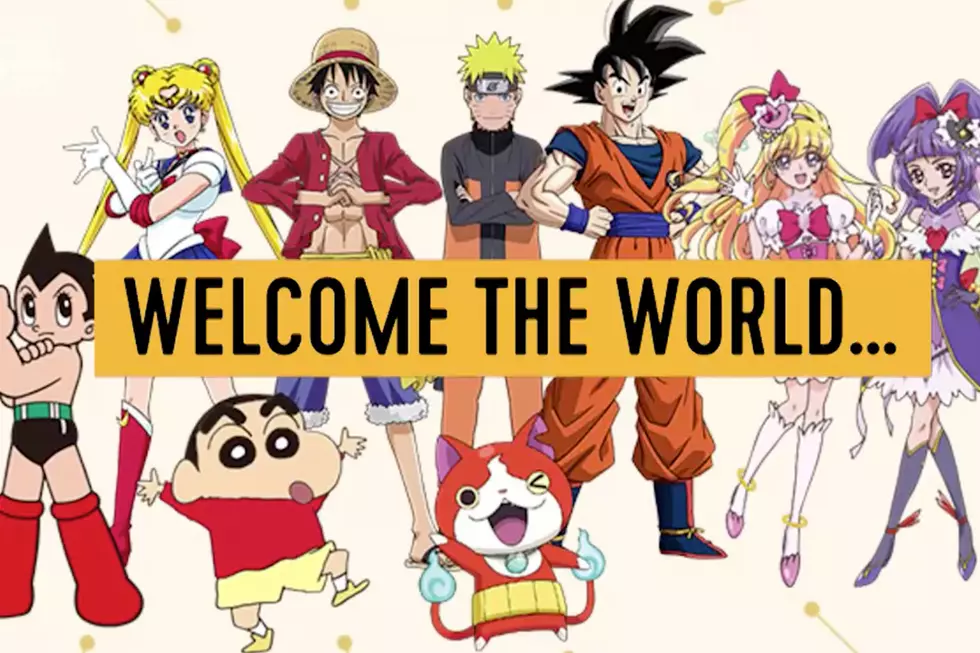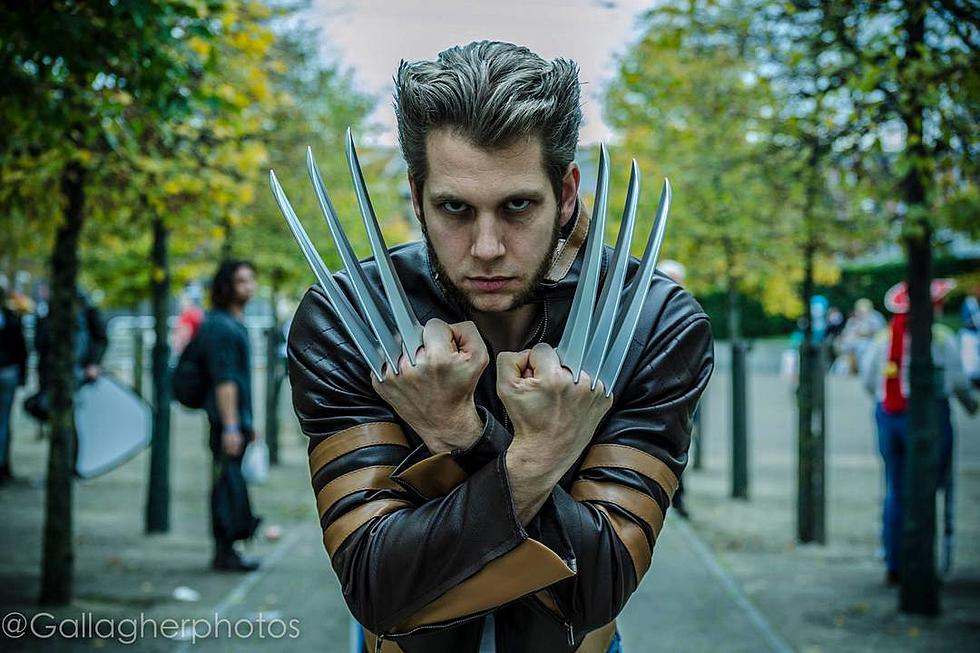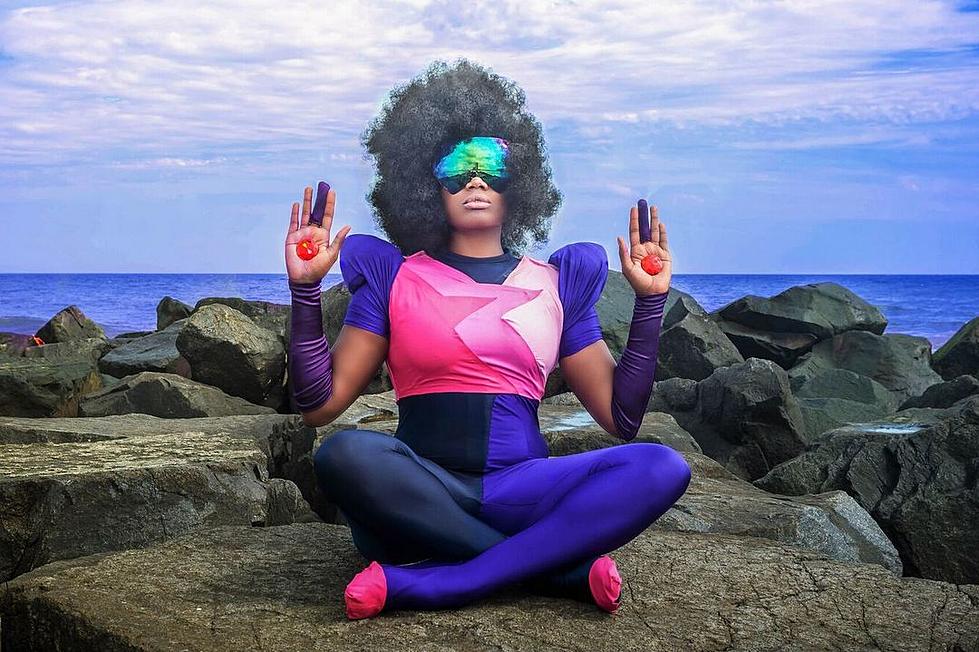
Ask Chris #6: Urban Fantasy and the ’90s
Here at ComicsAlliance, we value our readership and are always open to what the masses of Internet readers have to say. That's why we've given Senior Writer Chris Sims the punishment pleasure of stepping into the grand tradition of the Answer Man as he responds to your reader questions!

Q: We know how you feel about Anita Blake, but what do you think of the urban fantasy genre in general? --aintthataseamus
 A: For readers who might not be aware of it, I've spent the last three years and change doing a series of "annotations" for the Dabel Bros. and Marvel adaptations of the "Anita Blake" novels, and I've pretty much come to the conclusion that they're absolutely terrible.
A: For readers who might not be aware of it, I've spent the last three years and change doing a series of "annotations" for the Dabel Bros. and Marvel adaptations of the "Anita Blake" novels, and I've pretty much come to the conclusion that they're absolutely terrible.
But they're not terrible because of their genre; I think if I've shown anything during my tenure here at ComicsAlliance (aside from my undying love of the KGBeast), it's that I am all about some Draculas, and putting them in a modern setting can make for some incredibly fun stories. The problem is that "Anita Blake" is just not very good. They star a heroine who very rarely does anything, is constantly imperiled and generally rescued through the machinations of others, and very rarely lives up to the fact that all the other characters constantly talk about what a super-awesome badass she is.
Plus, they drag. In the three years that the series been coming out, Marvel's published 31 issues, adapting a grand total of two novels, with a two-issue mini-series thrown in for good measure, and the second novel, "The Laughing Corpse," accounts for fifteen issues itself. Fifteen issues! And the only time Anita actually does something is in the last one! Seriously, if you wrote fifteen issues of "Justice League" and all they did was sit around a table while Red Tornado cried, you'd... well, that's a bad example, but trust me: It's poor storytelling. I can't speak to the novels, but the narration of the comics seems to be provided by someone who is utterly infatuated with their own voice, and coming from me, a professional blogger, that's saying something.
So yeah, Anita Blake is rife with problems. But they're certainly not problems of genre.
 I have no problems with the genre at all, as evidenced by the fact that I'm a huge fan of Jim Butcher's "Dresden Files" series. Butcher's blend of faux-pulp detective fiction and fantasy is incredibly appealing to me, as is the character of Harry Dresden himself, who functions as almost the inverse of Anita Blake. He gets the crap kicked out of him on a pretty regular basis, but he still acts heroically, and while the "Anita Blake" comics take themselves way too seriously, there's an underlying humor to Butcher's work that lends a lot of credibility to the bizarre happenings of the book. He's able to pull off terrifying and ridiculous at the same time, which, in my opinion, is a pretty key skill when you're writing about Wolfmen and Draculas. Heck, the sixth book opens with Dresden literally saving a litter of puppies from a burning building, and that is hilarious.
I have no problems with the genre at all, as evidenced by the fact that I'm a huge fan of Jim Butcher's "Dresden Files" series. Butcher's blend of faux-pulp detective fiction and fantasy is incredibly appealing to me, as is the character of Harry Dresden himself, who functions as almost the inverse of Anita Blake. He gets the crap kicked out of him on a pretty regular basis, but he still acts heroically, and while the "Anita Blake" comics take themselves way too seriously, there's an underlying humor to Butcher's work that lends a lot of credibility to the bizarre happenings of the book. He's able to pull off terrifying and ridiculous at the same time, which, in my opinion, is a pretty key skill when you're writing about Wolfmen and Draculas. Heck, the sixth book opens with Dresden literally saving a litter of puppies from a burning building, and that is hilarious.
And the thing is, I actually got into Butcher's novels because of the comics. Specifically, "Welcome to the Jungle," an original story that Butcher wrote for Dabel Bros, which I picked up because my pals Richelle Mead and Caitlin Kittredge (themselves no slouches in the modern fantasy department as the authors of the "Vampire Academy" and "Black London" books, respectively) vouched for Butcher as good people.
For every "Tarot," there's a "Hellblazer," and just like any other genre, urban fantasy is what you make of it.
Q: What good things in the industry came out of the dismal 90s? What mistakes is the industry starting to repeat? --neuroticmonkey
A: As bad as comics were in the '90s -- and let's be honest here, by and large, they really were that bad -- it was, for better or for worse, a time when creators were moving forward. Admittedly, they were often moving forward into truly godawful stories, but there wasn't the clinging nostalgia to it that pervades so many comics today.

This was especially evident at DC. They had plenty of awful, awful mistakes, but the '90s allowed for experimentation and the rise of creators who didn't let things stagnate, like Grant Morrison and Mark Waid. I mean, Waid loves the Silver Age more than anyone, and yes, "Kingdom Come" is as close as comics can possibly get to an old man yelling at kids to get off his lawn and turn down that hippity-hop, but his run on "Flash" used the past as a springboard rather than a straitjacket, and the same goes for Morrison's "JLA." Even "Starman," a book that was both literally and metaphorically about looking back at the history of super-heroes, told stories that used nostalgia without being nostalgia.
Plus, the desire for experimentation -- and the money that was rolling in from "Knightfall" and "Death of Superman," I'm sure -- allowed the company to push the boundaries of the form with the rise of Vertigo. And again, a lot of it was awful, but for all its faults, the '90s were an era that made Garth Ennis a superstar with "Preacher" and "Hitman," brought Warren Ellis to prominence with "Transmetropolitan" and "Authority," and, of course, saw the vast majority of the still-pretty-damn-good Neil Gaiman "Sandman." The latter even came from the same ideology of "Extreme Justice" or "Fate," in that DC wanted to cast aside its past and re-envision an old character as something for a modern audience. Like it or not, Dream of the Endless is a spiritual brother to Jared Stevens: the Man Called Fate.
But it wasn't just at DC: By the late '90s, Image was already evolving from being the company that brought you "Youngblood" and "Shadowhawk" into what it is today, the company that brought you "Phonogram" and "Chew." It wasn't there yet (and heck, "Image United" is a good sign that it's not really all there now), but regardless of what the products were, it was an important step in making creator-owned properties viable in the market and putting more emphasis on the people who make the comics, rather than just which books had Spider-Man this month.
As for the mistakes that are being repeated: Variant covers as a selling tool. The continued marketing of comics as collectibles rather than as items to be read and enjoyed. Flooding the market with popular characters that dilute their brand. Reliance on The Next Big Story. Rob Liefeld.
But that's just me armchair editing, so take that with a grain of salt.
And now, the Quick Hits:
Q: Who would win in a rap battle Batman or Superman? --andrewjplant
A: Growing up in Kansas with parents who loved him, I doubt Superman would have the necessary flow, whereas Batman's two decades of training undoubtedly saw him spending a summer with the Blastmaster KRS-One, where he learned the art of the battle rhyme just in case.
Q: Are you disappointed that JH Williams III won't be doing art for the entire Batwoman series? (I kind of am) --BilliamFoushdow
A: Yes and no. Yes, because Williams does absolutely incredible work and I want to see as much of it as possible. And no, because I actually want the book to come out. What makes Williams' art so good is that it's phenomenally layered and detailed, and that takes an awful lot of time to produce, and while I'd be interested to see what would happen if he scaled back just a little to speed things up, he's one of the few artists in comics right now that's actually worth the wait.
Q: What non-mutant would you most like to see join the X-Men? --MinimumHeroic
A: Either Dracula or Ulysses Solomon Archer, the hero of Marvel's highly underrated telepathic CB trucking series, "U.S. 1."
Q: Ok, If Simon, Trevor, Richter and Sonia Belmont had to fight to be the one, true Vampire Killer, who would win, and why? --Bean525
A: Out of those four, you really have to go through process of elimination: Sonia was unfortunately removed from Castlevania continuity, Richter was upstaged by Alucard, and it's definitely not going to be Simon, since he was in the hated "Castlevania II: Simon's Quest," a game that I hate with a passion usually reserved for J. Jonah Jameson and Spider-Man. That leaves Trevor, who is not only the star of the best NES Castlevania game, but also, thanks to his relationships with Alucard and Sypha Belnades, is the focal point upon which so much of Castlevania is built. And that's real.
 Q: Who is your favourite Sailor Scout and why? -- chrisleblanc79
Q: Who is your favourite Sailor Scout and why? -- chrisleblanc79
A: My first instinct was to go with Mars, but really, she's kind of a total jerk to Sailor Moon to an extreme that even her frustrations with destiny, reincarnation and boys doesn't really warrant. So I'm going to go with Sailor Mercury! She might be really annoying, but she's smart, and she gets that little computer visor thing, and most importantly, she's got blue hair. And in the words of Strong Bad, you've gotta have b--
Hang on. I've just been handed a note by ComicsAlliance editor Laura Hudson. It, uh... It seems that the official position of ComicsAlliance and all staff is that our favorite is Sailor Mars, and I am very sorry for insinuating otherwise.
Hope that clears things up.
That's all we've got for this week, but if you'd like to have your question answered on ComicsAlliance, tag it on twitter with "#askchris" or send us an email with "Ask Chris" in the subject line!
More From ComicsAlliance









